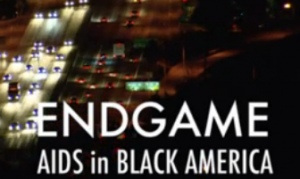By Alvin Tran

When the AIDS epidemic began thirty years ago, it was portrayed by the media as a white, gay man’s disease. As depicted in a Frontline documentary premiering Tuesday night on PBS, that wasn't the complete story then, and it's not the case now.
"ENDGAME: AIDS in Black America" shows the tremendous disparity the HIV/AIDS epidemic has unleashed on the black community in the U.S. As Renata Simone, the documentary's producer and director, described on KQED's Forum Tuesday morning, African Americans make up about 12 percent of the nation's population, but account for almost half of all people infected with HIV, the virus that causes AIDS. "Everyday, about 156 people get infected with HIV and half are black,” she told Forum host Michael Krasny.
The documentary features personal stories and interviews from HIV-positive individuals who come from black communities across the country including Oakland. Simone interweaves the role of prejudice, stigma, drugs and prostitution in contributing to the spread of HIV deep in the black community.
Jesse Brooks, an Oakland AIDS activist featured on ENDGAME, also joined Simone on Forum to share his personal experience of coming out and living with HIV. Brooks reminded listeners that the letter ‘H’ in H-I-V stands for ‘human.’ “If we got that in the beginning, that it was a human virus, instead of a white, gay male virus, we wouldn’t be where we are now,” Brook asserted.